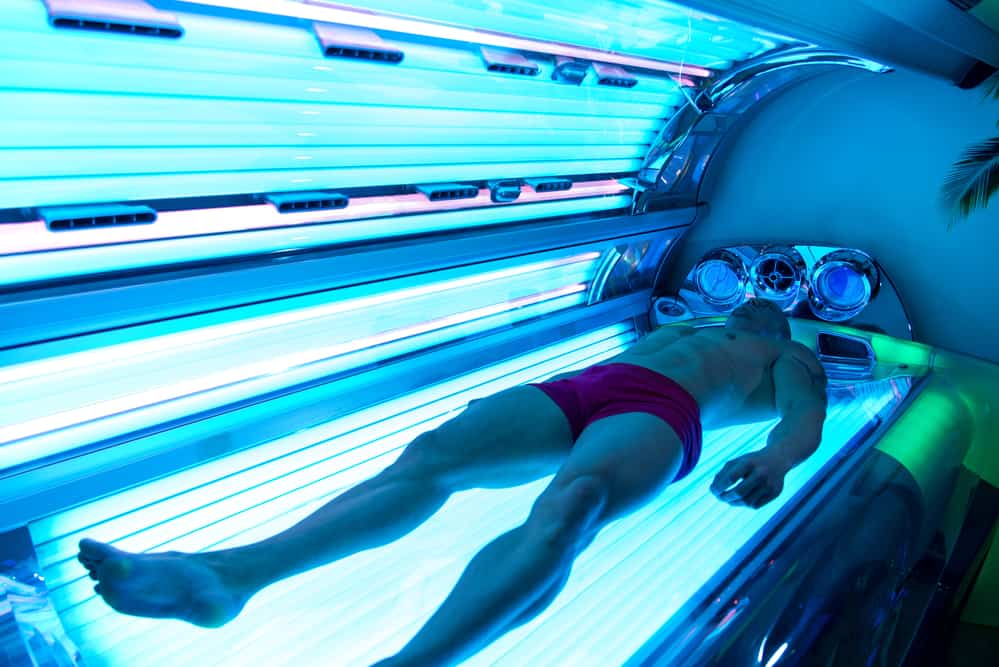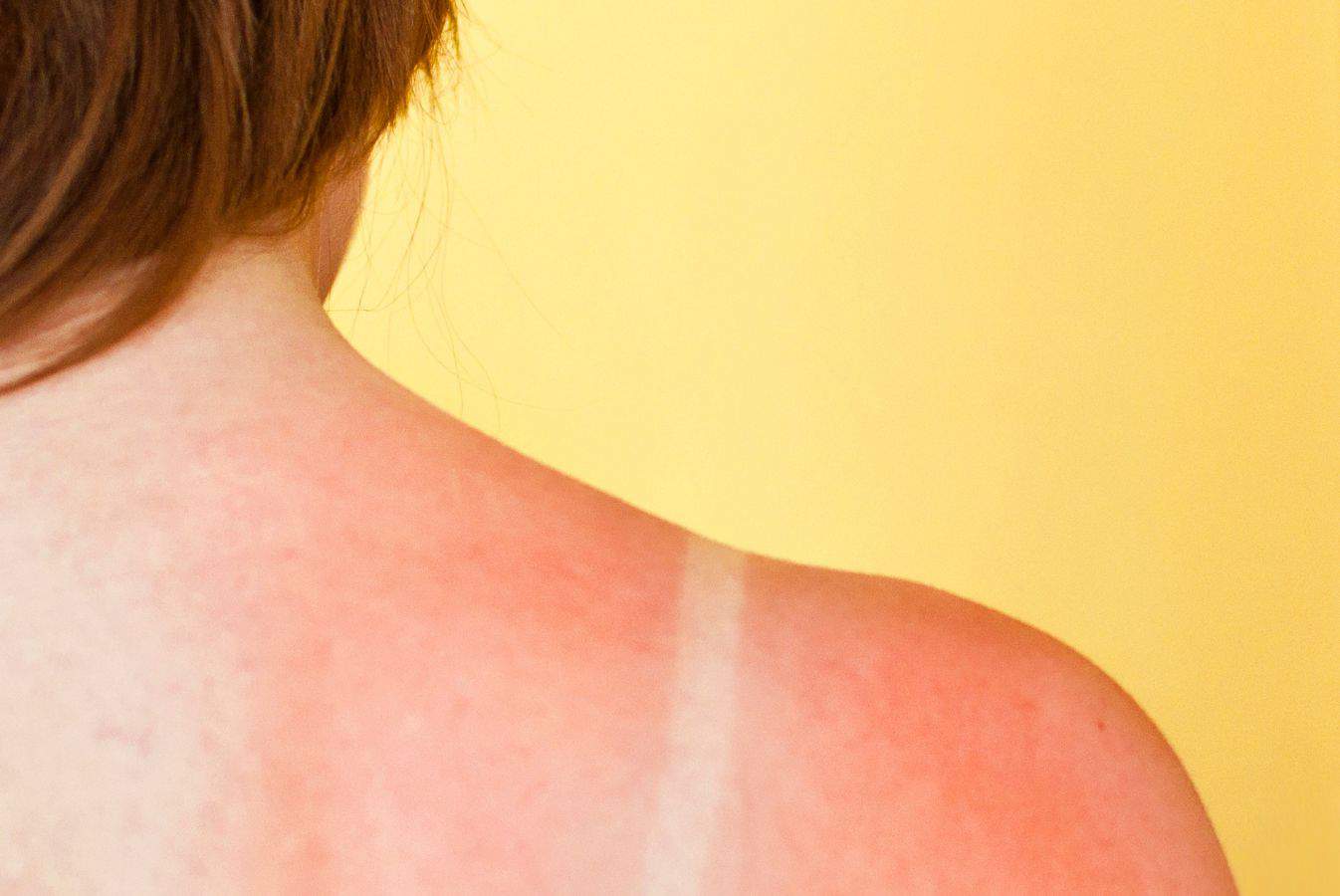Are you looking to sport that sun-kissed summer glow while preserving the vibrancy of your sun tanning tattoos? Fear not, we’re here to guide you through the best practices to keep your ink protected and your skin glowing. In this blog post, we will discuss the impact of sun exposure on sun tanning tattoos, share tips for protecting your tattoos while tanning, and explore alternative tanning methods for tattooed skin.
Table of Contents
The Impact of Sun Exposure on Tattoos

Sun exposure can be both a friend and a foe to your tattoos. While soaking up the sun’s rays gives you that desired summer tan, too much sun exposure can also lead to tattoo fading and loss of color. This is because the sun’s UV rays break down the pigment in your ink, resulting in a loss of vibrancy and detail. So, how can you strike a balance between achieving that sun-kissed look and preserving your tattoos? Fear not – we have the answers.
Indoor tanning beds and outdoor sun exposure are two popular methods for getting a tan. However, there is a crucial difference between the two when it comes to your tattoos. Indoor tanning beds emit more concentrated UV rays compared to outdoor sun exposure. This means that tanning beds fade tattoos more quickly due to the higher intensity of UV radiation. Therefore, it’s essential to take necessary precautions when tanning to maintain the appearance of your ink.
How UV Rays Break Down Tattoo Pigments
UV rays are a type of non-ionizing radiation emitted by both the sun and artificial sources, such as tanning beds. These rays are typically divided into three categories: UVA, UVB, and UVC. Prolonged exposure to UV rays can increase the risk of skin cancer, but that’s not the only thing you should be worried about when it comes to your tattoos.
The UV light affect from sun exposure or tanning bed exposure has a significant impact on tattoos. It dissolves tattoo pigments, resulting in fading and blurring of the design. This is why it’s crucial to protect your tattoos from the sun and tanning beds to preserve their vibrancy and detail.
The Difference Between Indoor Tanning and Outdoor Sun Exposure
Indoor tanning utilizes artificial UV light, which can be more powerful and consistent than natural sunlight. However, it is associated with a greater risk of developing melanoma compared to outdoor tanning. Indoor tanning beds emit more concentrated UV rays than those from outdoor sun exposure, which can lead to tattoo fading and damage. It is important to wait until your tattoo is fully healed before exposing it to tanning beds.
On the other hand, outdoor sun exposure poses a lower risk of tattoo fading and damage compared to indoor tanning beds. However, you should still take precautions to protect your tattoos from the sun’s rays. By being aware of the potential risks of both indoor and outdoor tanning when deciding to get a sun tanning tattoo, you can make an informed choice and take the necessary steps to protect your ink.
New Tattoos and Sun Tanning: What to Avoid

New tattoos are delicate and require special care to ensure proper healing. Exposing a new tattoo to sun or tanning beds can lead to severe sunburns, causing early fading and increasing the risk of infections. Instead, consider using alternative tanning methods, such as spray tanning, to achieve a bronzed look without risking damage to your new tattoo.
To ensure a bronzed complexion during the healing process, it is recommended to receive a few UV bed sessions prior to the tattoo appointment and then switch to spray tanning until the tattoo is completely healed. This approach can help reduce the risk of skin damage and even skin cancer, while still allowing you to flaunt your summer tan.
Healing Timeframe: When is it Safe to Tan?
Before you can safely expose your new tattoo to sun or tanning beds, you need to give it time to heal. It is suggested to wait 4-6 weeks after obtaining a new tattoo before exposing it to sun or tanning beds in order to avert infection and fading. This timeframe allows your skin to recover and your tattoo to fully heal, ensuring that your new ink still remains vibrant and damage-free.
During this healing period, you can consider alternative tanning methods, such as spray tanning or sunless tanning products. These options allow you to maintain a sun-kissed look without exposing your new tattoo to the potentially harmful effects of UV rays, ensuring a properly healed tattoo.
Potential Risks and Complications
Tanning with a new tattoo can result in fading, pigment damage, and irritation. To ensure proper healing, it is advisable to avoid tanning for a minimum of 3 months after acquiring a new tattoo. More severe risks associated with tanning with a new tattoo include permanent scarring, deformation, and an increased risk of infection.
To avoid these risks and ensure the longevity of your tattoo, it is essential to take proper precautions during the healing process. This includes using sunscreen with a high SPF, covering the tattoo, and maintaining hydration of the skin.
Protecting Your Tattoo While Tanning

Taking care of your tattoo while tanning is crucial for maintaining its vibrancy and preventing damage. There are several methods you can employ to protect your ink while still achieving that sun-kissed glow. In this section, we’ll discuss the importance of using sunscreen with high SPF, covering your tattoo, and keeping your skin moisturized during tanning sessions.
By following these measures, you can ensure that your tan tattoo remains bright and bold while still enjoying the benefits of a summer tan and exploring the world of tan tattoos.
Using Sunscreen with High SPF

One of the most important steps in protecting your tattoos while tanning is applying sunscreen with SPF 30 or higher for effective sun protection. Sunscreen with high SPF can help prevent fading and discoloration of tattoos due to UV exposure. Moreover, it is essential to ensure that the sunscreen you choose provides broad-spectrum protection, which guards against both UVA and UVB rays.
For optimal protection, it is recommended to use a generous amount of sunscreen on tattoos and to reapply every two hours or after swimming or sweating. Some excellent options for tattoo-friendly sunscreens include EltaMD UV Sport Sunscreen Lotion, Mad Rabbit Defend Tattoo Sunscreen, and Neutrogena Sheer Zinc Mineral Sunscreen Stick SPF 50.
Covering Your Tattoo
Another effective way to protect your tattoo while tanning is by covering it. This can be done using medical dressings or fabric that shields the tattoo from UV rays, thus preventing fading and damage. When choosing a covering, make sure it is breathable and doesn’t cause irritation to your skin.
While it may not be as convenient as applying sunscreen, covering your tattoo during tanning sessions is a surefire way to safeguard it from UV rays and maintain its vibrancy. Remember, your tattoo is a work of art that deserves to be protected and cherished.
Keeping Skin Moisturized
Moisturizing your skin is another crucial aspect of protecting your tattoo while tanning. Keeping your skin hydrated helps prevent dryness and cracking caused by sun or tanning bed exposure, preserving the tattoo’s appearance. To ensure skin hydration while tanning, it is recommended to consume plenty of water, apply a non-oil-based light moisturizer immediately after showering, and utilize a moisturizer that safeguards your skin and assists dry skin in retaining moisture.
By incorporating these tips into your tanning routine, you can maintain the health and beauty of your skin while still enjoying the sun and achieving that desirable summer glow.
Alternative Tanning Methods for Tattooed Skin
If you’re looking for tanning methods that won’t cause permanent damage to your tattoos, there are alternative options available. Spray tanning and sunless tanning products are two popular choices that allow you to achieve a bronzed look without exposing your ink to harmful UV rays.
These methods provide a temporary tan without the risk of tattoo fading or damage caused by sun exposure or tanning beds. Let’s dive deeper into these alternatives and explore their benefits.
Spray Tanning
Spray tanning is a process that involves applying a tanning solution onto the skin, which contains a dye that interacts with the skin to produce a tan. This method can temporarily darken or dull tattoos but won’t fade them permanently like tanning beds. It is suggested to wait a minimum of one month after receiving a new tattoo before utilizing spray tanning to prevent the risk of infection.
Although spray tanning may result in skin irritation, allergic reactions, and inhalation of the chemicals used in the process, it is still a safer option for maintaining a sun-kissed look without exposing your tattoos to the damaging effects of UV rays. Opting for a spray tan can help you avoid these risks while still achieving a beautiful glow.
Sunless Tanning Products
Sunless tanning products, such as lotions and mousses, are another alternative for tanning tattooed skin. These products contain a dye that interacts with the skin to create a natural-looking tan without the need for sun exposure. For optimal results, it is important to apply sunless tanning products evenly to the skin and allow them to dry before dressing.
Some highly-rated sunless tanning products include St. Tropez Self Tan Luxe Whipped Crème Mousse, Jergens Natural Glow Daily Moisturizer, Tan Luxe Hydra Mousse, and Bondi Sands Self Tanning Foam. These products offer a convenient and safe way to achieve a tan without risking any sun damage to your tattoos.
Summary
In conclusion, protecting your tattoos while tanning is essential to maintain their vibrancy and prevent damage. By using sunscreen with high SPF, covering your tattoos, and keeping your skin moisturized, you can enjoy the sun and maintain a bronzed look without compromising the beauty of your ink. For those with new tattoos or looking for alternative tanning methods, spray tanning and sunless tanning products offer a safe and effective way to achieve a sun-kissed glow. Don’t let the sun steal the spotlight from your tattoos – take the necessary precautions and let your ink shine bright.
Frequently Asked Questions
How long after a tattoo can you tan in the sun?
It is recommended that you wait between two and three weeks before exposing a new tattoo to the sun. You should also remember to apply sunscreen when tanning to protect your skin and avoid burning or damaging your tattoo. Nov 11, 2020.
How do I protect my tattoo in my tanning bed?
To protect your tattoo in a tanning bed, cover the area with a high-SPF sunscreen before laying down in the tanning bed. Be sure to apply sunscreen generously and accurately by using a cotton swab for more precision.
Reapply the sunscreen every time you enter the tanning bed for the best protection.
Can I cover my tattoo for a sunbed?
It’s not recommended to get a tan with a fresh tattoo, so covering it with a piece of cloth and securing it with medical tape before using a sunbed is the best option. This will ensure that only the area of your tattoo gets exposed and not any other skin on your body.
Can I get a spray tan after a tattoo?
Yes, you can get a spray tan after a tattoo. As long as the tattoo is healed, it’s safe to apply tanning lotion or a self-tanner to your skin, including the area of the tattoo.
Spray tanning does not use UV-rays, so there’s no risk to your tattoo from getting a spray tan.
Do tattoos tan in the sun?
Yes, tattoos can tan in the sun just like any other part of your skin. However, it is important to avoid getting too much sun exposure and using proper aftercare measures to protect your tattoo from fading, discoloration, and damage.
It is best to use proper aftercare measures such as sunscreen and avoiding excessive sun exposure when trying to keep your tattoo looking its best.








